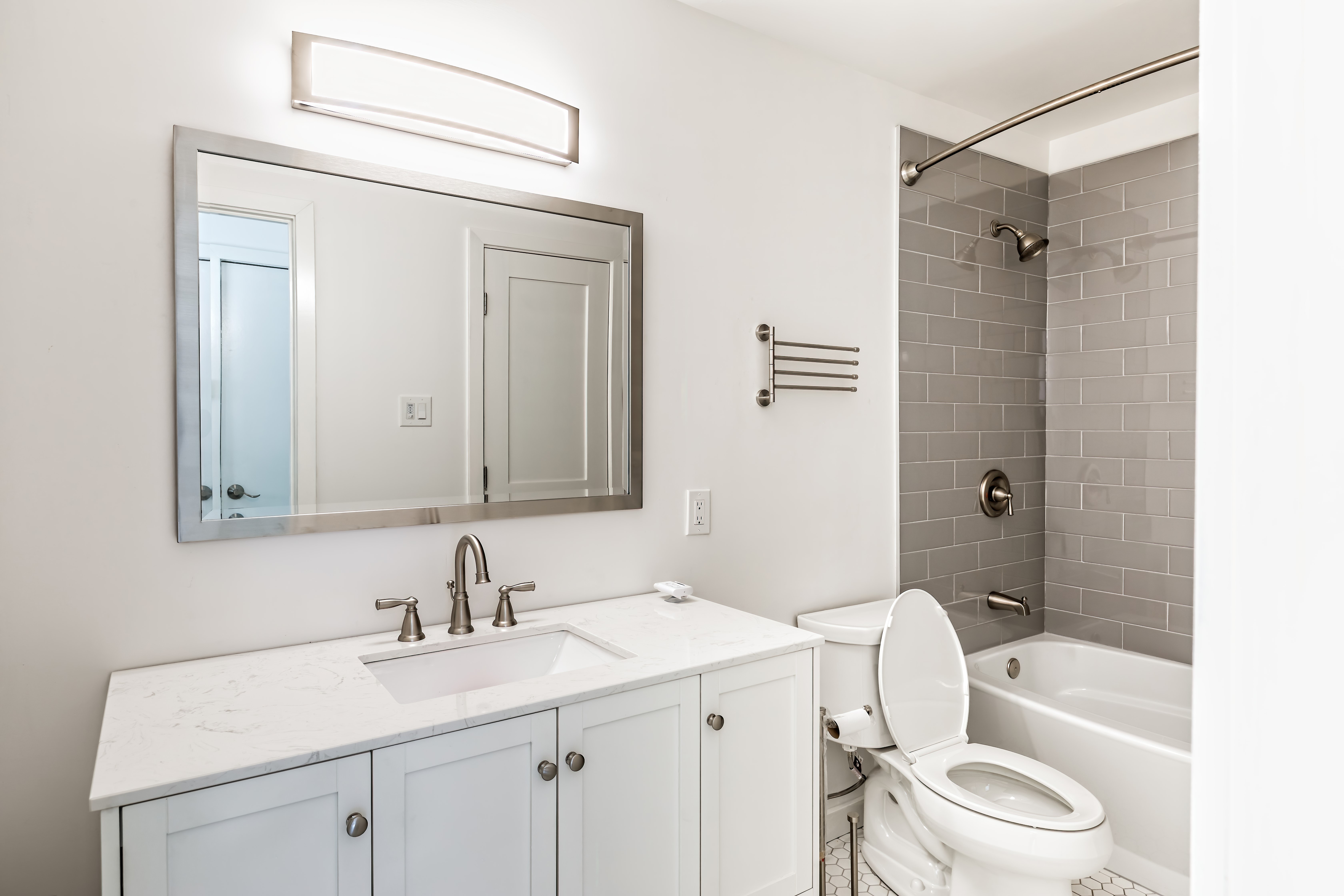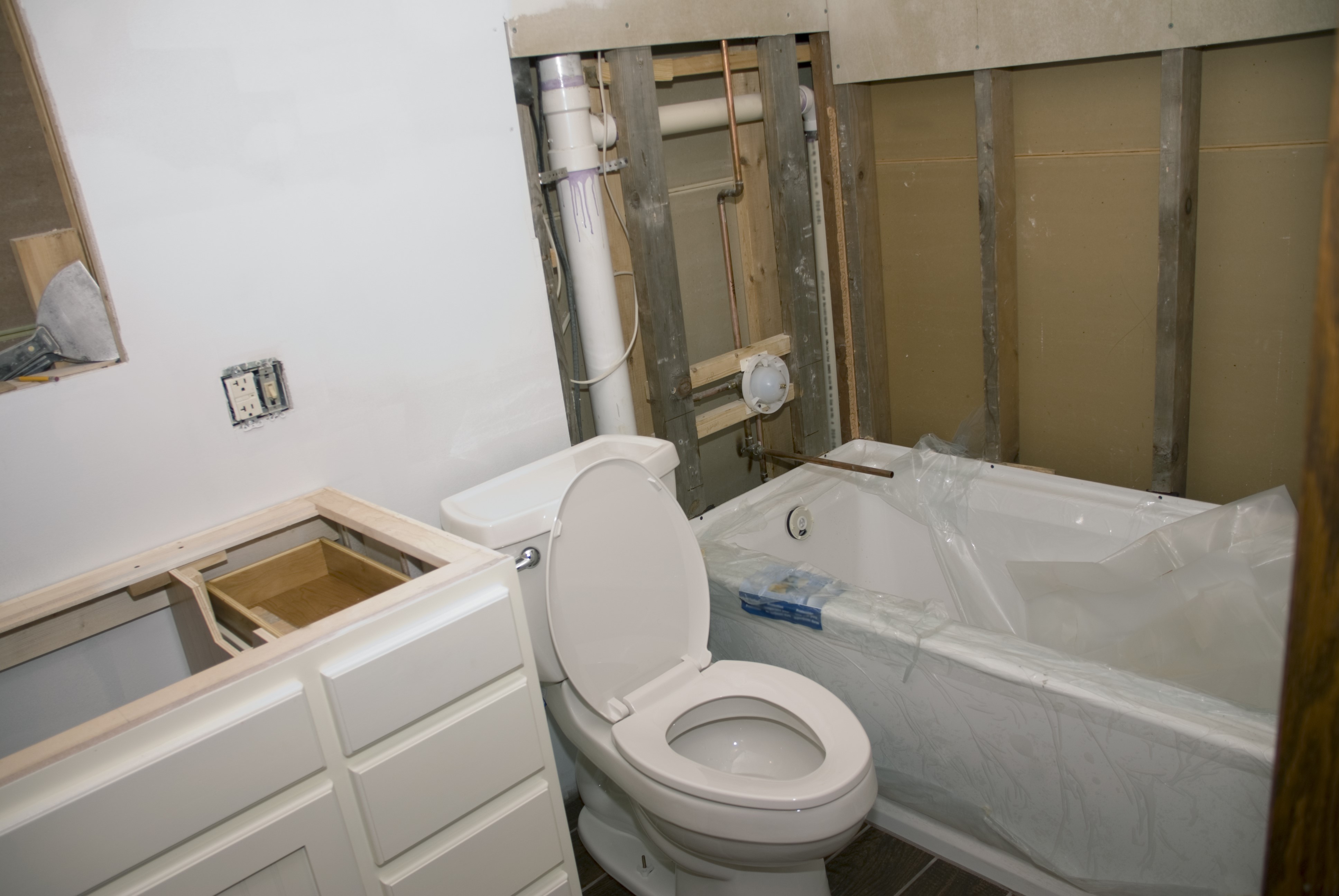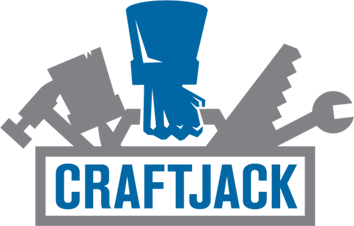How To Start A Bathroom Remodeling Business
Get your bathroom remodeling business off to a great start. Find out how to start out as a contractor remodeling kitchens and bathrooms, how to set up a company, and where to get great leads.

Kitchen and bathroom remodeling is an in-demand and always growing job field. According to the Bureau of Labor Statistics, contractors in this field can expect to earn a starting salary of $41,000 a year, with the top 10% of contractors earning more than $65,500. Getting started in this potentially lucrative field can be done as an employee of an established contractor, or you can start your own company and offer your services directly to landlords and homeowners in your area. Some areas require professional certification for bathroom remodeling jobs, but classes to prepare you for licensure are widely available around the country. Starting your own bathroom remodeling business requires some paperwork, financing, and a steady supply of promising leads to keep your business growing for as long as you own it.
Are you looking for more bathroom remodeling jobs in your area? Sign up with CraftJack and start receiving remodeling leads today.
Necessary Skills For Kitchen And Bathroom Remodeling Contractors
Construction professionals who want to start remodeling kitchens and bathrooms should generally have the same basic skills expected of any other home contractor, plus a specialized skill set that prepares them specifically for remodeling rooms with complex plumbing and electrical systems installed. Many professionals start with basic carpentry and remodeling work, combined with some flooring and drywall experience.
Job skills specific to bathroom and kitchen remodeling typically include plumbing and wiring for home electrical work. Some cabinetry and grout work are helpful to have, along with ventilation work for the room's ceiling fan and painting for both finishing work and mold abatement. Many bathroom remodelers are able to install grip bars, nonslip pads, and other mobility safety devices. This work often requires training in ADA compliance and other legal and licensing issues.
Independent contractors generally also need small business skills. While it's not strictly related to the main job, bathroom remodeling companies are small businesses that come with all of the typical concerns of independent operators. Common business skills contractors need include:
- Finance, bookkeeping, and accounting
- Management and supervision experience, especially for companies big enough to have helpers
- Vehicle operations and maintenance
- Scheduling, sales, and customer service
- Regulatory compliance for local codes and building standards
Though you may not need a professional's skill level for business operations, some familiarity with these tasks is helpful.
What Certifications Does A Contractor Need?
Contractor licensing is done at the state level, and there's a lot of variation between the 50 states, District of Columbia, and U.S. territories. They all have a few things in common, however. Every state requires kitchen and bathroom remodelers to have a general contractor's license, which generally requires some combination of classroom training, practical experience, and standardized testing. In order to take the test, applicants are often required to submit a taxpayer ID number, which can be your Social Security number, proof of insurance that meets the state's standards, and some evidence of residency, such as utility bills and a state-issued ID. You may also have to produce evidence of citizenship or legal residency, pass a criminal background check, and show proof of age.
Classroom Education
Contractors in every state are expected to have at least a high school diploma or an equivalent recognized by the state government. Many contractors have bachelor's degrees, with the most common majors falling into the fields of building and construction science, construction management, and business management. These classes and the curriculum they form may be prescribed by the state contractor licensing board, or there may just be a general requirement for a certain educational minimum. Some states can be expected to verify your diploma or GED, and you may have to demonstrate a minimum grade level for advanced training programs before you can apply to take the state certification test.
Practical Training
Practical training as a bathroom remodeler can be had from several sources. Depending on what's available in your area, you might get hands-on training at a local trade academy, community college, or work-study program. Some established contractors offer apprenticeships. These programs vary in structure, but they often require you to work as a helper or as general labor for a time while you learn the basics of the bathroom remodeling jobs you go on. Depending on how much work is available, you could complete your apprenticeship in one or two years, after which you may transition to full-time paid employment with the company you've been working for. Your state licensing board may require a statement from your employer or supervisor attesting that you have the state minimum number of hours worked or that you've done a certain number of jobs and acquired the necessary skills to take the licensing test.
The skills you need to learn to certify as a kitchen and bathroom remodeler cover a wide base, and the learning process can take some time. Most apprenticeship programs require you to learn enough to work independently or with minimal supervision on a bathroom's:
- Plumbing fixtures, pipes, and drainage systems
- Light switches, electrical outlets, and other wiring, including hardwired light fixtures
- Appliance installation and removal, such as the toilet, sink, bathtub or shower, and other fixtures
- Flooring, mainly for linoleum and tile
- Drywall and paint, including issues relating to black and dry mold
- Some cabinetry, such as the installation of medicine cabinets and storage units fixed to the walls and floor
Hands-On Work Experience
Many apprentices delay taking the state test after their apprenticeship ends because of the benefits hands-on work experience offers. Kitchen and bathroom remodelers are in demand, and working under a licensed contractor can provide a stable, relatively high paycheck while you work toward your own certification. Extended work time also gives you a chance to observe how an experienced contractor runs a small business and make the necessary contacts in the industry to hit the ground running when you set out on your own in the field.

Getting Your First Job As A Bathroom Remodeler
Getting your first job as a bathroom remodeler can be a challenge, especially if you haven't started out as an apprentice worker. Despite the overall high volume of work available in most areas, breaking into the field often takes a personal connection or a glowing referral. If you don't already know somebody who's hiring for kitchen and bathroom remodeling jobs, you can try asking your teachers and trainers at high school and trade school, or just call around until you find a contractor in your area who's hiring and willing to train a new worker. If you change employers later before you're out on your own, be sure to get a written recommendation from your previous boss. Personal referrals are more important in home contracting than in most other fields, and a solid referral from a trusted source can open a lot of doors for new professionals in the field.
Starting Your Own Bathroom Remodeling Business
Many home improvement contractors eventually reach the point of branching off from their employer and starting a bathroom remodeling business of their own. This takes planning and hard work, but for many it's the best way to get ahead in a competitive field. Before you start your own remodeling business, make sure you have a plan to succeed.
Register Your Company
The first step in starting any kind of small business is to register a company with your state's business authority. Some states have a department of corporations that handles registering of small businesses, while others delegate the job to the secretary of state's office. However your state handles new business, you have to file paperwork and establish a legal entity with a unique business name. Part of the process is to pick a fictitious name your company can do business under, as well as register with the IRS to get an Employer Identification Number (EIN). The EIN acts as a kind of Social Security number for your company, and it can be used to open a bank account, take out a line of credit, and pay taxes. Many states require you to publish a notice in a newspaper that you're starting a company. This can take anywhere from 30 to 90 days, after which the state government recognizes your business as a legal entity.
You have several options for how to organize your company. The type of entity you choose has significant effects on how you can fund the business, how it can operate, and whether it's the company or the owner who pays taxes for the revenue it generates. The main forms you can choose from are:
- Sole proprietorship: A sole proprietorship is a legal shell that exists around you as you work. While this type of company is a separate entity from its owner, it's typically run by just a single person and operates in many ways like a person itself. Consult with a business adviser for details about how this type of organization can benefit your business.
- Limited liability company (LLC): LLCs are the most common choice for contractors and other small business professionals. The LLC is referred to as limited because it limits the amount of risk you take on as its owner to just the assets you've invested in it. This can be a valuable layer of protection from lawsuits, tax bills, and regulatory issues.
- Limited partnership: Limited partnerships are similar to LLCs except that they typically have a silent partner who helps fund the business but may play no active role in running the company.
Secure Funding
Once you have a company set up, you need financing to get started. For most home remodeling professionals, funding means a business loan from a bank. Speak with a personal banker about your lender's requirements, and be ready to submit tax documents and a business plan for approval.
It's a good idea to borrow a bit more than you're likely to need right away. In addition to the necessary purchases of a vehicle and tools, you might also want a small buffer of available cash to get by on until incoming remodeling leads free you up to operate in the black.
Market Your Business
Every new bathroom remodeling business needs customers, and in the beginning you can use every one you can get. You can directly market to customers with phone calls, fliers in the mail, and even leaving home remodeling business cards in public places for people to find. Consider joining professional trade organizations to network with other contractors in your area and get word-of-mouth referrals from them. You can also sign up with CraftJack to help generate leads and hit the ground running from day one of your new company's operations.



